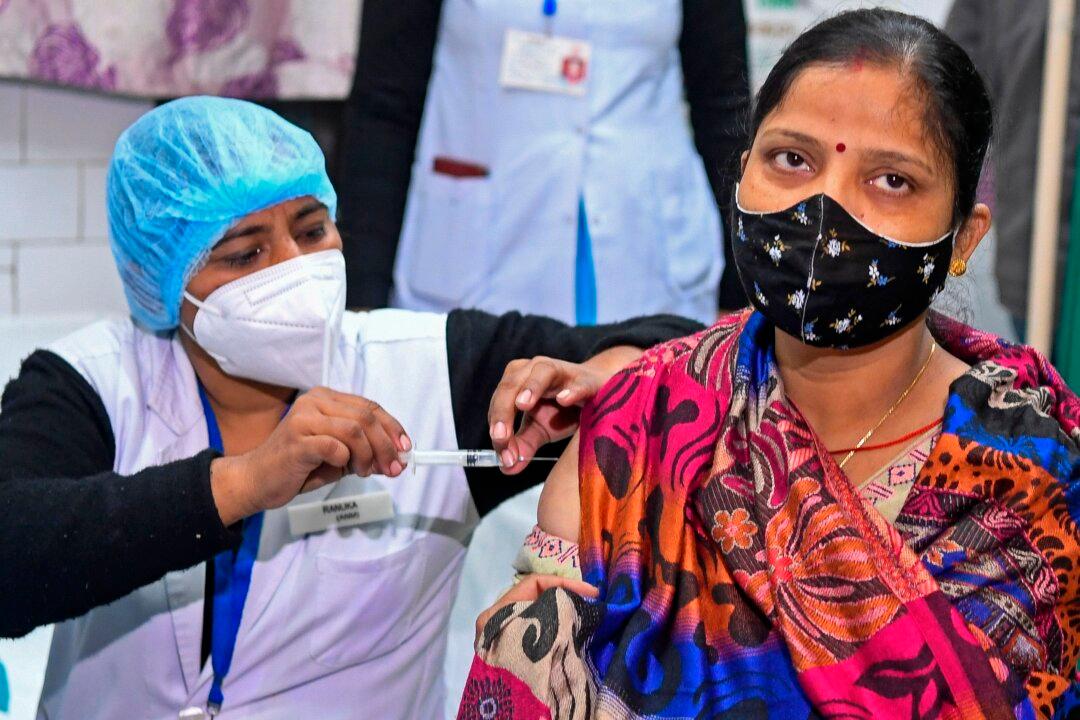India’s drug regulator on Sunday announced that it had approved two COVID-19 vaccines for emergency use, one developed by Oxford University and AstraZeneca, and another developed locally.
Dr. V.G. Somani, the drugs controller general of India, said at a press briefing in New Delhi that the decision to approve both vaccines came after “careful examination” by Central Drugs Standard Control Organization, India’s pharmaceutical regulator.





